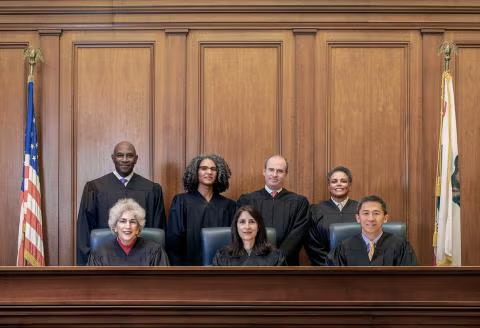Supreme Court Bombshell: Title VII Protects LGBTQ Employees from Workplace Discrimination
On June 15, 2020, in Bostock v. Clayton County, the U.S. Supreme Court ruled in a 6-3 decision that Title VII of the Civil Rights Act of 1964 (“Title VII”) protects LGBTQ employees from workplace discrimination and assures LGBTQ employees of equal treatment in all “terms and conditions” of employment.
Justice Neil Gorsuch, a Trump appointee, authored the Bostock decision. Justice Gorsuch went to great lengths to argue that Title VII’s language prohibiting discrimination “on the basis of sex” also included discrimination “on the basis of sexual orientation.” He wrote:
An individual’s homosexuality or transgender status is not relevant to employment decisions. That’s because it is impossible to discriminate against a person for being homosexual or transgender without discriminating against that individual based on sex….
Judges are not free to overlook plain statutory commands on the strength of nothing more than suppositions about intentions or guesswork about expectations. In Title VII, Congress adopted broad language making it illegal for an employer to rely on an employee’s sex when deciding to fire that employee. We do not hesitate to recognize today a necessary consequence of that legislative choice: An employer who fires an individual merely for being gay or transgender defies the law.
Prior to the Bostock ruling, it was legal in 28 states for an employer to fire or otherwise discriminate against an LGBTQ employee. Now, after Bostock, LGBTQ employees in all 50 states and the District of Columbia are protected by federal law from workplace discrimination if they work for a company that employs 15 or more employees (because Title VII applies to those companies). An LGBTQ employee who works for a company with less than 15 employees is not protected by Title VII (since Title VII does not apply to small business), but would still be protected under state law if that LGBTQ employee works in one of the 22 states or the District of Columbia that has a state law prohibiting discrimination on the basis of sexual orientation and/or gender identity. Those 22 states are shown in dark green below:

*Map courtesy of Movement Advance Project (MAP)
California employers have little to do in response to the Bostock decision because California law has outlawed sexual orientation discrimination since 1992 and gender identity discrimination since 2003. So California employers’ policies and training materials should already be compliant with the Bostock decision.
But employers outside of California should review their written EEO and other employment policies and amend them include sexual orientation and gender identity as additional protected categories. In addition, employers outside of California should update their sexual harassment and retaliation policies to include language that makes it clear that bullying, harassment, or retaliation directed at LGBTQ employees is also now illegal – just as sexual harassment and retaliation has been for decades.
You can read the U.S. Supreme Court’s decision in Bostock v. Clayton County here.
Insights
OUR BLOG


